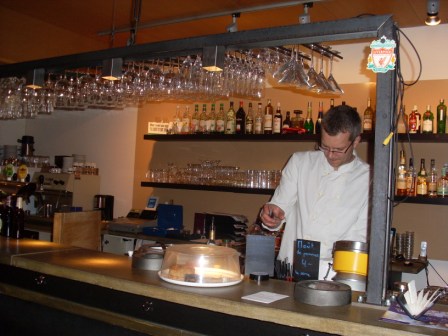Replies from several contacts with agents and publishers in various countries were still pending. It seems it can take up to 18 months for a positive reply to come in. That I can also understand. I sometimes wait ages before I actually buy a book I have read about or discovered.
But several replies had immediately come in and I identified three on which to follow up, two of which from companies having signed agreements with ASPG. These were an offer to make my book a best seller on Amazon and thus attract publisher and agents looking for high sales figures and hype, and an offer to distribute my books in China. The third was a contact in the UK interested in my work but who would only deal with publishers.
The only book of mine that is self published is a Kindle of The Past Present which I reissued because the original UK publisher had folded several years ago. My second book, Back Burning, was published by IP Australia in 2007, and my latest, Mercury Blobs and Consuming the Muse by AstridL, were both published by Raging Aardvark, Australia, in 2013.
I asked my publisher to contact the UK interest which she did, but two weeks later we still have had no answer. Maybe it does take 18 months.
I passed on the offer of having my “book” a bestseller on Amazon, since the fee and maintaining the book in the charts was a bit too much for my budget, particularly when the “bestseller” status was in a subcategory as a free download. There is information on the web that allows self-published authors to become “bestsellers” without the investment the company wanted. Here are some links on this and the importance of category: How the Amazon Ranking/ Bestseller Numbers Can Work for You and The Secret of the Amazon rankings.
The distribution offer to China was very attractive, albeit also out of the range of my budget. However, some bells began ringing when I saw that the company CEO was Robert Fletcher of Writer Beware fame dating from 2009.
I was ready to forgive and forget and believe in the new leaf until I saw another article on Deutsche Welle containing an interview with the Editor-in-Chief of Publishing Perspectives, whom I had met in Frankfurt. (Publishing Perspectives ran very interesting free daily talks at the book fair.) The lines that spoke to me were: “The priority of Chinese publishers is to cater to demand of the vast mass market, which is still likely to be reticent to express a strong desire for Western works, even if we would like to think it is latent – which, frankly, it might not be. After all, China is a proud nation that wants to be seen as on equal, if not higher, cultural footing than the West.”
 So I am still thinking about responding to that offer. However, bells are ringing again because of, although not directly related, a recent incident on the entries on, or the disappearance thereof from, the Facebook page of ASPG, and something I saw on the blog of Australian children´s author, Robert S. Towner.
So I am still thinking about responding to that offer. However, bells are ringing again because of, although not directly related, a recent incident on the entries on, or the disappearance thereof from, the Facebook page of ASPG, and something I saw on the blog of Australian children´s author, Robert S. Towner.
I realise that people need to make a livelihood and that the aspirations of writers in this new world of multiple tools and avenues offer great opportunities. However, there is a need for dialogue and discussion, a need to be transparent, a need to be straight and direct with writers. If dissent is quashed on a public page, this throws a negative light on the good there. Criticism allows for dialogue and improvement, for finding new ways to help writers and thus oneself.
I have been told that there is a need to invest in one´s book(s), and I agree. That investment, however, should first and foremost be in making the book the best that it can be which may mean paying an editor, a proofreader, a cover designer, and then, only then considering a publicist, a distributor, after having checked out what it is that can be done fairly cheaply on one´s own or in a like-minded group with the same aims.
So, distributors and publishers, here´s a question for you. Are you being completely transparent with the writers who come to you; do you believe in their work?
And writers, one for you. Is your book the best it can be? Is it worth doing a bit of research on what is out there, perhaps learning new ways yourself, learning to safeguard yourself and your work?
And testimonial writers, big names and small, do you really know all you need to before lending your name?
If you all answer, yes, then there is hope for the day when self-publishing and publishing become one single way of getting books before readers, because that is what we really want, don´t we?




